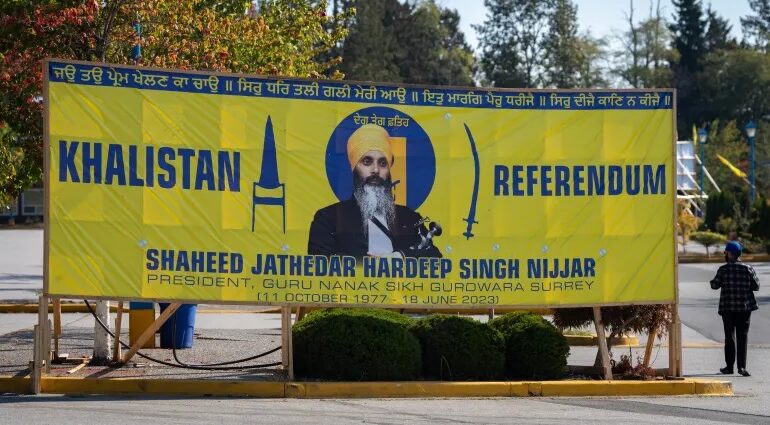After publicly accusing India of links to the assassination, Canada now wants to resolve differences quietly.
Two weeks after Canadian Prime Minister Justin Trudeau sparked a diplomatic war with India by accusing New Delhi of possible involvement in the killing of a Canadian Sikh separatist leader, Ottawa’s tone appears to be shifting.
On Tuesday, Trudeau and Foreign Minister Melanie Joly indicated that they did not want to fuel tensions with India by speaking about them publicly — a sharp contrast with the open claims against India that the prime minister made in parliament.
How has Canada’s rhetoric changed?
The row started last month after Canada directly linked agents of the Indian government with the killing of Hardeep Singh Nijjar, a Sikh leader in British Columbia accused of “terrorism” by India.
Canada expelled the Indian embassy’s intelligence chief in Ottawa. India responded by expelling a Canadian diplomat. Talks for a free trade deal were pushed into deep freeze.
On Tuesday, shortly after a report said New Delhi had asked Canada to withdraw 41 diplomats from India – most of the 62 Canadian diplomats in the country – by October 10, Joly took a less confrontational approach.
She said Canada and India remain in contact and Ottawa prefers a private resolution.
“We take Canadian diplomats’ safety very seriously and we will continue to engage privately because we think diplomatic conversations are best when they remain private,” she told reporters.
Trudeau, meanwhile, said Canada “is not looking to escalate” the dispute.
“We’re taking this extremely seriously, but we’re going to continue to engage responsibly and constructively within with the government of India,” he said, in a separate interaction with reporters.
Why the change of tone?
Already, the back and forth between Canada and India has led to serious repercussions.
Beyond the tit-for-tat expulsions of diplomats, India has suspended visa services in Canada, so Canadians – who are some of the top visitors to India – will be unable to travel to India unless they had a visa from before.
And it would signal a significant step up in tensions if India decides to go ahead with a decision to expel the majority of Canadian diplomatic presence in New Delhi.
For its part, India has strongly denied the allegations levelled by Canada and has dismissed them as “absurd” and politically motivated.
The role played by the Western allies of both countries cannot be ignored either, not to mention geopolitical considerations.
The United States has tried to keep the peace with Canada by saying there is no “wedge” between the two allies on the issue, which Washington is deeply concerned about.
A report by the Financial Times said US President Joe Biden and some other members of the Five Eyes – the intelligence-sharing network that also includes Australia, Canada, New Zealand and the United Kingdom – raised the killing with Indian Prime Minister Narendra Modi at the G20 summit earlier this month.
But the Western allies have steered clear of strongly-worded public statements that would antagonise India, which they view as a powerful counterweight to rising Chinese influence in the Indo-Pacific region.


